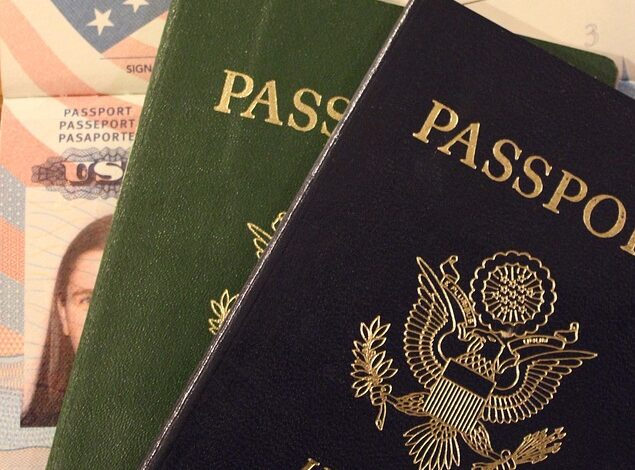Legal Rights and Responsibilities of French Citizens

French citizens enjoy a wide range of rights and are subject to specific responsibilities as outlined by the French Constitution, laws, and international treaties. These rights and responsibilities are deeply rooted in the principles of liberty, equality, and fraternity, which form the foundation of the French Republic. Below is an overview of the key legal rights and responsibilities of French citizens.
1. Fundamental Rights of French Citizens
a. Equality Before the Law
- Article 1 of the French Constitution states that France is an indivisible, secular, democratic, and social Republic. It guarantees equality before the law for all citizens, regardless of origin, race, religion, or gender.
- Discrimination based on these factors is prohibited and punishable under the law.
b. Freedom of Expression
- French citizens have the right to freedom of speech, press, and assembly, as enshrined in the Declaration of the Rights of Man and of the Citizen (1789).
- However, this freedom is not absolute; hate speech, incitement to violence, and defamation are illegal.
c. Right to Privacy
- The right to privacy is protected under French law, including protection against unwarranted searches, surveillance, and data breaches.
- The General Data Protection Regulation (GDPR) further reinforces these protections.
d. Right to Vote
- French citizens aged 18 and above have the right to vote in national, regional, and local elections.
- Voting is not mandatory but is considered a civic duty.
e. Right to Education
- Education is a fundamental right in France, with free public schooling available from primary through secondary levels.
- Higher education is also accessible, though tuition fees apply at universities.
f. Right to Healthcare
- France has a universal healthcare system (Sécurité Sociale ), ensuring access to medical services for all citizens.
- Employers and employees contribute to the system through payroll taxes.
g. Right to Work
- Every citizen has the right to work under fair and equitable conditions.
- Labor laws protect workers’ rights, including minimum wage, paid leave, and safe working environments.
h. Right to Legal Representation
- Citizens have the right to a fair trial and access to legal representation.
- Legal aid is available for those who cannot afford it.
2. Responsibilities of French Citizens
a. Respect for the Law
- French citizens are required to obey national and local laws, including traffic regulations, tax obligations, and environmental protections.
b. Civic Participation
- While voting is not compulsory, active participation in democratic processes is encouraged.
- Citizens are also expected to engage in community life, such as volunteering or participating in local governance.
c. Tax Obligations
- Citizens must pay income taxes, social contributions, and other applicable levies to fund public services like healthcare, education, and infrastructure.
d. National Service
- Although mandatory military service was abolished in 1996, young people may participate in voluntary civic service programs (Service National Universel ) to contribute to society.
e. Environmental Responsibility
- Citizens are encouraged to adopt sustainable practices, such as recycling, reducing energy consumption, and supporting eco-friendly initiatives.
f. Upholding Secularism
- France is a secular state (laïcité ), meaning religion and state affairs are separate.
- Citizens are expected to respect this principle, particularly in public institutions like schools and government offices.
3. Special Rights for Vulnerable Groups
a. Women’s Rights
- Gender equality is a cornerstone of French society, with laws prohibiting discrimination and promoting equal opportunities in employment, education, and politics.
- Measures exist to combat domestic violence and support victims.
b. Children’s Rights
- The welfare of children is prioritized, with laws protecting them from abuse, exploitation, and neglect.
- Parental leave policies and childcare support systems are in place to assist families.
c. Rights of Persons with Disabilities
- Legislation ensures accessibility to public spaces, transportation, and employment opportunities for individuals with disabilities.
- Financial assistance and specialized services are provided to improve their quality of life.
d. Immigrant and Refugee Rights
- Refugees and asylum seekers have the right to apply for protection and access basic services.
- Integration programs help newcomers adapt to French society while respecting their cultural identities.
4. Protections Under International Treaties
France is a signatory to numerous international agreements that reinforce citizens’ rights:
- Universal Declaration of Human Rights (UDHR): Establishes global standards for human dignity and freedoms.
- European Convention on Human Rights (ECHR): Provides additional safeguards for civil liberties within Europe.
- Charter of Fundamental Rights of the European Union: Ensures consistency between EU and national laws regarding individual rights.
5. Balancing Rights and Responsibilities
The French legal framework emphasizes the balance between personal freedoms and collective responsibilities. For example:
- Freedom of expression must coexist with respect for others’ dignity and public order.
- The right to protest is protected, but demonstrations must be peaceful and authorized.
6. How to Exercise Your Rights
If you believe your rights have been violated, several avenues are available:
- Ombudsman (Défenseur des Droits ): An independent authority that investigates complaints about discrimination, police misconduct, or administrative errors.
- Courts: Legal action can be pursued to address grievances related to employment, housing, or consumer rights.
- NGOs and Advocacy Groups: Organizations like Amnesty International France or SOS Racisme provide support and guidance.
7. Evolving Rights and Responsibilities
French society continues to evolve, leading to new debates and reforms. Recent developments include:
- Strengthening digital rights, such as online privacy and cybersecurity.
- Addressing climate change through stricter environmental regulations.
- Expanding LGBTQ+ rights, including marriage equality and adoption rights for same-sex couples.



